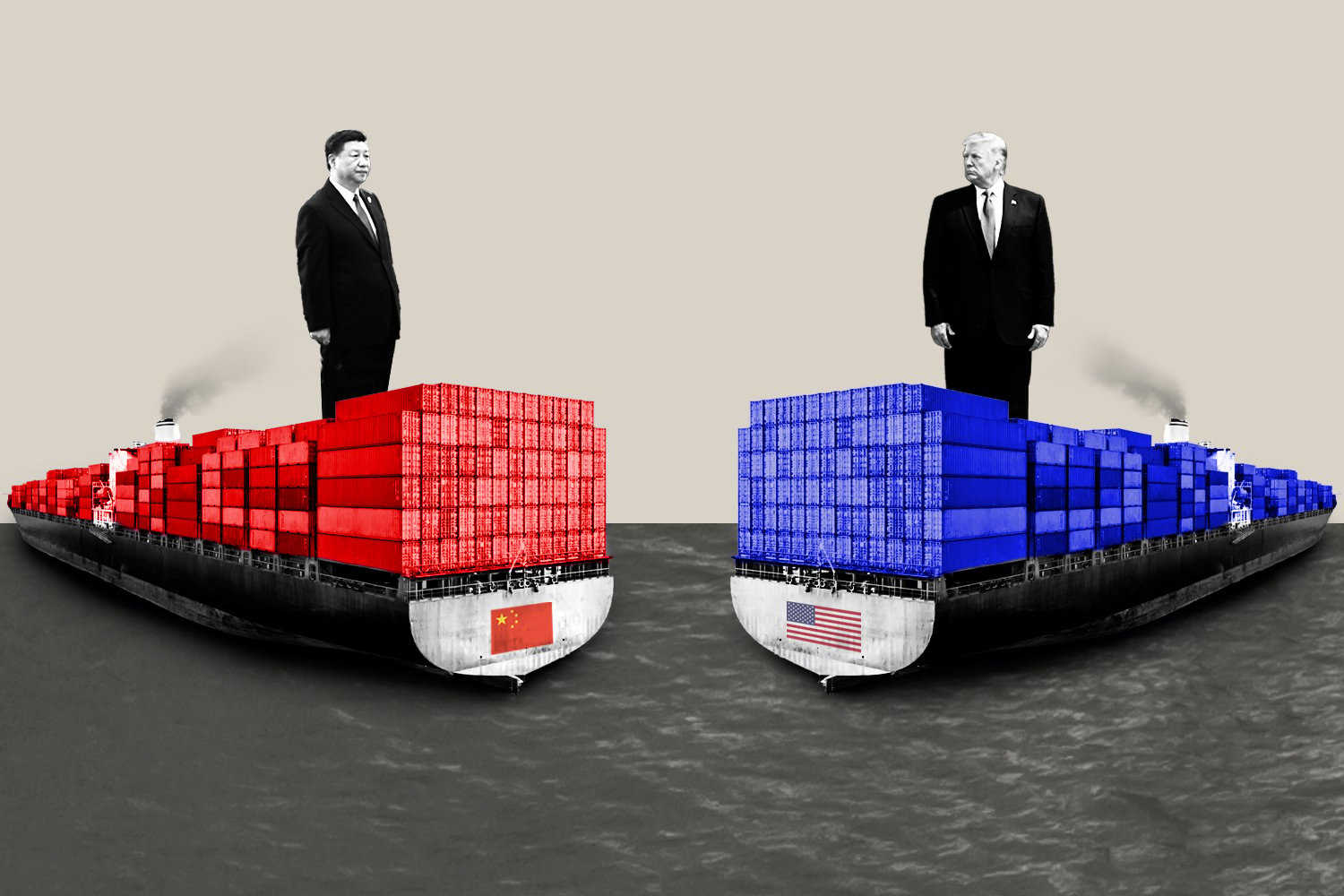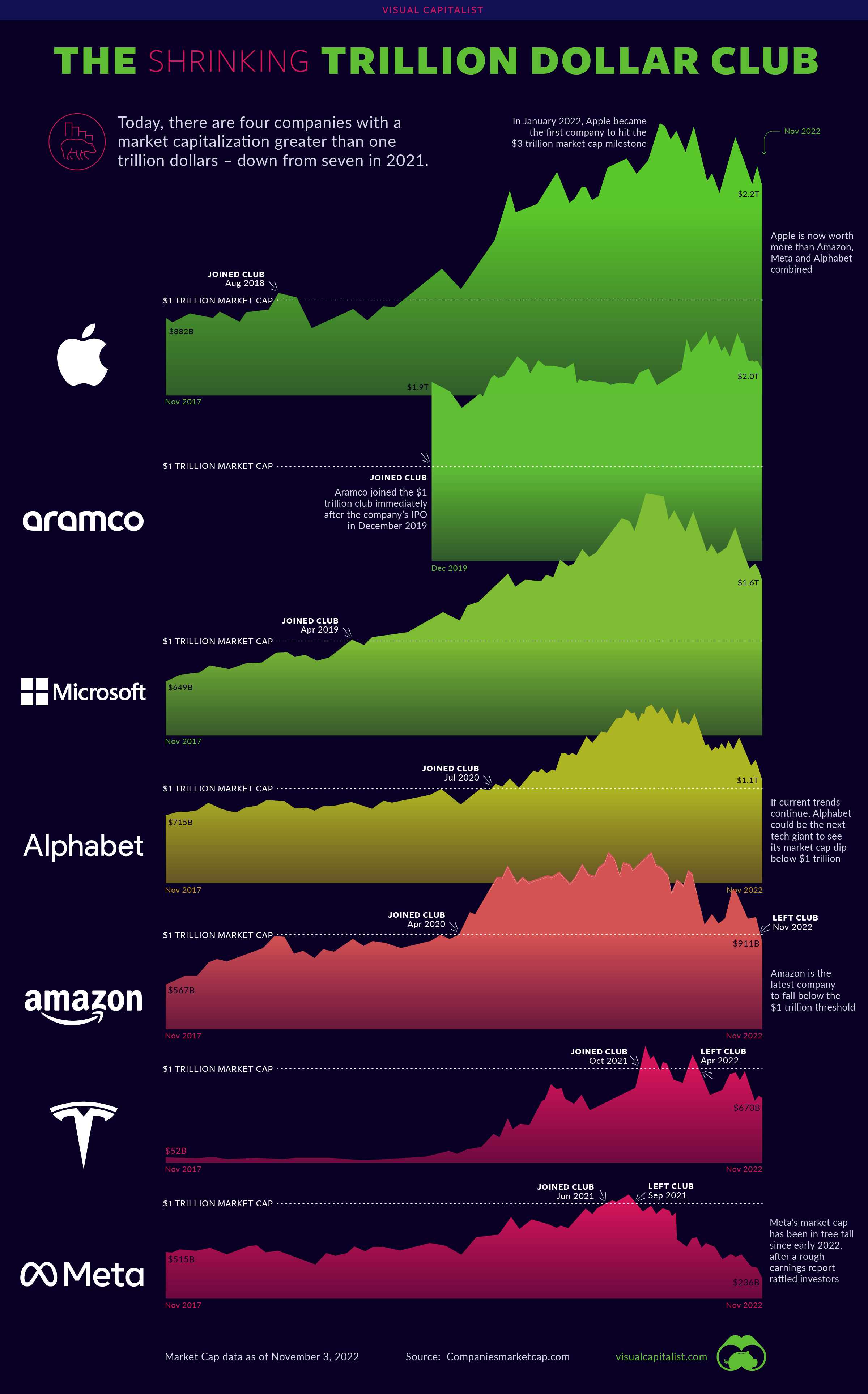The Great Decoupling: Economic Implications And Global Shifts

Table of Contents
Geopolitical Tensions and the Driving Forces Behind the Great Decoupling
The Great Decoupling is not a sudden event but a gradual process fueled by escalating geopolitical tensions and diverging economic strategies. US-China relations, once characterized by economic interdependence, are now marked by significant rivalry. This rivalry is driven by several key factors:
-
Escalating US-China trade tensions and technological rivalry: Trade wars initiated by both countries, coupled with increasing restrictions on technology transfer, have significantly disrupted established trade patterns. The competition in areas like semiconductors, artificial intelligence (AI), and 5G technology has further intensified this decoupling. This technological rivalry is a central element of the Great Decoupling, impacting national security strategies and economic policies.
-
Increased geopolitical instability and the rise of protectionist policies: Global political instability, including conflicts and regional tensions, has emboldened protectionist policies in many countries. This has led to a rise in tariffs, trade barriers, and restrictions on foreign investment, hindering global economic integration. The emphasis on national security interests over free trade has accelerated the decoupling process.
-
Diverging political and ideological systems impacting economic cooperation: The fundamental differences in political and economic systems between the US and China, and other major global players, are creating significant challenges for cooperation. These differences create distrust and hinder the development of mutually beneficial economic relationships.
-
The impact of sanctions and export controls on global trade: Sanctions and export controls, particularly those imposed by the US and its allies on certain countries, are disrupting established supply chains and fostering a more fragmented global trading system. This has significant implications for global trade and economic stability.
This complex interplay of factors has significantly accelerated the Great Decoupling, leading to a re-evaluation of global supply chains and economic partnerships.
Economic Implications of the Great Decoupling: Restructuring Global Supply Chains
The Great Decoupling is fundamentally reshaping global supply chains. Businesses are increasingly adopting strategies to reduce their dependence on single sourcing and mitigate geopolitical risks.
-
The rise of "friend-shoring" and "nearshoring" strategies to reduce reliance on single sourcing: Companies are actively diversifying their supply chains, moving production closer to home ("nearshoring") or to countries with closer political and economic alignment ("friend-shoring"). This reduces reliance on specific regions and mitigates risks associated with geopolitical instability.
-
Increased costs associated with supply chain diversification and regionalization: Shifting production and diversifying supply chains comes at a cost. Companies face higher transportation expenses, increased labor costs in different regions, and potentially lower economies of scale.
-
Potential for increased inflation and economic uncertainty due to disrupted supply chains: The disruption of established supply chains can lead to shortages, increased prices, and economic uncertainty. Inflationary pressures are a significant concern as companies grapple with the increased costs of diversification.
-
The impact on developing economies reliant on global trade: Developing economies that heavily rely on exports to major economies are particularly vulnerable to the disruptions caused by the Great Decoupling. This necessitates a reassessment of their economic strategies and diversification efforts.
The economic implications of this restructuring are profound and far-reaching, requiring businesses to adapt their strategies to navigate this new, more complex global landscape.
The Great Decoupling and the Future of Globalization: A Multipolar World Order?
The Great Decoupling is not simply a reshuffling of existing economic relationships; it is fundamentally altering the nature of globalization itself.
-
The emergence of a multipolar world order with competing economic blocs: The decoupling process is fostering the emergence of competing economic blocs, with the potential for a multipolar world order replacing the previous, more integrated system. Regional trade agreements are gaining prominence, creating interconnected but potentially isolated economic spheres.
-
The potential for increased regional trade agreements and economic fragmentation: We can expect to see a rise in regional trade agreements, such as the Comprehensive and Progressive Agreement for Trans-Pacific Partnership (CPTPP), as countries seek to deepen economic ties within their respective regions. This could lead to increased economic fragmentation.
-
Challenges to existing global governance structures and international cooperation: The Great Decoupling poses significant challenges to existing global governance structures, like the World Trade Organization (WTO), as countries prioritize national interests over multilateral cooperation.
-
The role of emerging economies in shaping the future of global trade: Emerging economies are playing an increasingly important role in shaping the future of global trade. Their economic growth and strategic partnerships will significantly influence the trajectory of the Great Decoupling.
The future of globalization remains uncertain, but the Great Decoupling points towards a more fragmented and multipolar world economy.
Conclusion
The Great Decoupling represents a fundamental shift in the global economic landscape. The interplay of geopolitical tensions, economic strategies, and technological competition is reshaping international trade and supply chains. Understanding the implications of this decoupling—from supply chain restructuring to the emergence of a multipolar world—is crucial for navigating the evolving economic landscape. Staying informed about the latest developments in the Great Decoupling and its ramifications is essential for businesses and policymakers alike. Further research into the specific impacts on various sectors and regions is vital to mitigating risks and harnessing opportunities presented by this significant global economic shift. Continue to learn more about the complexities of the Great Decoupling and its impact on the world economy. Understanding the global economic shift is key to navigating this new era of economic uncertainty and developing resilient strategies for the future. Further exploration of supply chain diversification and deglobalization trends will be crucial to adapting to this changing environment.

Featured Posts
-
 5 Must Read Stephen King Books For True Fans
May 09, 2025
5 Must Read Stephen King Books For True Fans
May 09, 2025 -
 Rhlt Fyraty Mn Alahly Almsry Ila Alerby Alqtry Alinjazat Walarqam
May 09, 2025
Rhlt Fyraty Mn Alahly Almsry Ila Alerby Alqtry Alinjazat Walarqam
May 09, 2025 -
 Palantirs Path To A Trillion Dollar Market Cap A 2030 Projection
May 09, 2025
Palantirs Path To A Trillion Dollar Market Cap A 2030 Projection
May 09, 2025 -
 Nyt Strands Hints And Answers Wednesday March 12 Game 374
May 09, 2025
Nyt Strands Hints And Answers Wednesday March 12 Game 374
May 09, 2025 -
 Jazz Cash K Trade Partnership Empowering Investors Through Accessibility
May 09, 2025
Jazz Cash K Trade Partnership Empowering Investors Through Accessibility
May 09, 2025
